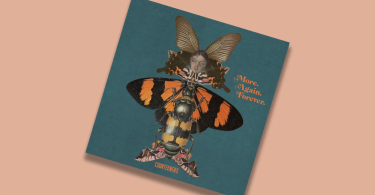Shocked and dumbfounded. That’s how I, and millions of others, felt on the morning of January 11th, when the news broke that David Jones, 69, died of cancer. He’d only released his twenty-fifth album Blackstar, a wonderfully neurotic free-jazz dystopia a couple of days beforehand. But it was true: Bowie, in the apt words of spoof news site NewsThump, had returned home.
There’s nothing I can say that hasn’t already been said by tearful fans on radio shows and slimy politicians trying to boost their popularity. Bowie’s impact on popular culture is incalculable. He synchronised different forms of art into mesmeric and coherent musical packages with unparalleled grace. ‘Ashes to Ashes’ remains the future of music, which says a lot about the ‘progressiveness’ of rock n’ roll from the past thirty-five years. For all my love of ‘Ashes to Ashes’, 1974’s Diamond Dogs, rock and roll’s glam-hued interpretation of George Orwell’s immortal 1984, captures Bowie’s all-encompassing artistic vision more fully.
Genre-hopping
The ambitious concept album is an ambidextrous alloy on which art, music and literature combine to create something dangerous and cerebral. Amongst the gloom, Bowie created untold joy with one of the filthiest riffs in history on ‘Rebel Rebel’. Guy Peellaert’s comically satanic artwork expressed Bowie’s unique vision of a sexual, terrifying and sexually terrifying future. Known as Aladdin Sane only a year ago, Ziggy Stardust had transformed utterly. His unpredictability, his anarchic ignorance for contemporary trends kept him vital. Genre-hopping never diluted his identity because he always reshaped his interests in his own image.
It’s hard to comprehend that Blackstar only came out two days before Bowie’s death. More remarkably, he managed to extract obtuse art from terminal illness. Pop’s arch-chameleon could’ve taken the ‘chilled’ route, teamed up with hummus bawler James Bay and written a collection of seismic insults to his back catalogue, but mercifully he refrained. Those hoping for a sparkling pop number to rival the singles from 1983’s Let’s Dance, arguably the last time Bowie wrote explicit pop, will also be crushed.
Brashly surreal
Bleak and abrasively raw, Blackstar elicits Public Image Limited’s 1979 post-punk totem Metal Box in its freeform ambition. Whereas PiL favoured metallic scree-fests, Bowie opted for balmier, angular jazz sculptures soaked in personal anguish. Deathly echoes permeate and occasionally threaten to dominate Blackstar, but a palette of emotions steers the listening experience away from kitsch clutches into tempestuously colourful pastures.
Bowie is at times brashly surreal: ‘I’m sittin’ in the chestnut tree/ who the fuck’s gonna mess with me?’ he spits on ‘Girl Loves Me’. He’s kept a sense of humour: ‘man she punched me like a dude’, he reflects on clattering mess ‘Tis a Pity She was a Whore.’ Androgynous till the end is our David. Disturbingly, Bowie’s infallible voice often conveys resignation and fear. ‘Look up here man, I’m in danger/ I’ve got nothing left to lose’ wails the doomed maverick on ‘Lazarus’, aided by beautifully elegiac saxophone and macabre, steel-scraping guitar work. It’s difficult contemplating Bowie scared, but here he is in all his fragility, contemplating mortality.
[video:https://www.youtube.com/watch?v=qqW-kvU5cLg]He sounds simultaneously terrified and determined on ‘Dollar Days’, encapsulated by the contradictory couplet ‘I’m dying too (or to?) / I’m trying to (or too?).’ Closer ‘I Can’t Give Everything Away’ is Bowie clinging onto the ledge of every word for support as he tries to reconcile transparency and privacy. His cryptic lyrics recall Irish playwright Samuel Beckett, who spent most of his career laughing at audiences’ attempts to decode his important sounding phrases. Bowie leaves signposts to dark and deformed roads leading to different places, some of which are dead ends. Previous records demonstrated he was a cosmonaut amongst men, but Blackstar is Bowie’s most human record, because it shows the great man at his most fearful. Death humanised the starman and brought him down to earth.
A true musical icon
The diverse range of artists mourning The Thin White Duke’s passing are children of his restless interest in eclectic cultural references. From M.I.A to Pulled Apart by Horses, Lorde to Q-Tip, musical clans cast aside their rivalries and gushed about Bowie’s influence on their music, clothes and outlook on life. Unlike Michael Jackson, who received sugary eulogies from fake friends who’d abandoned him after he became a gift to satire, Bowie got genuinely warm praise from those who like to think they knew him. Listening to his interviews, Bowie seemed a charming and friendly intellectual whose restless pursuit of knowledge led him down artistic routes no one will ever traverse as successfully. His ability to unite people across continents, ages and class was as powerful in death as it was in life.
Have you listened to Blackstar yet? Let us know in the comments below.








